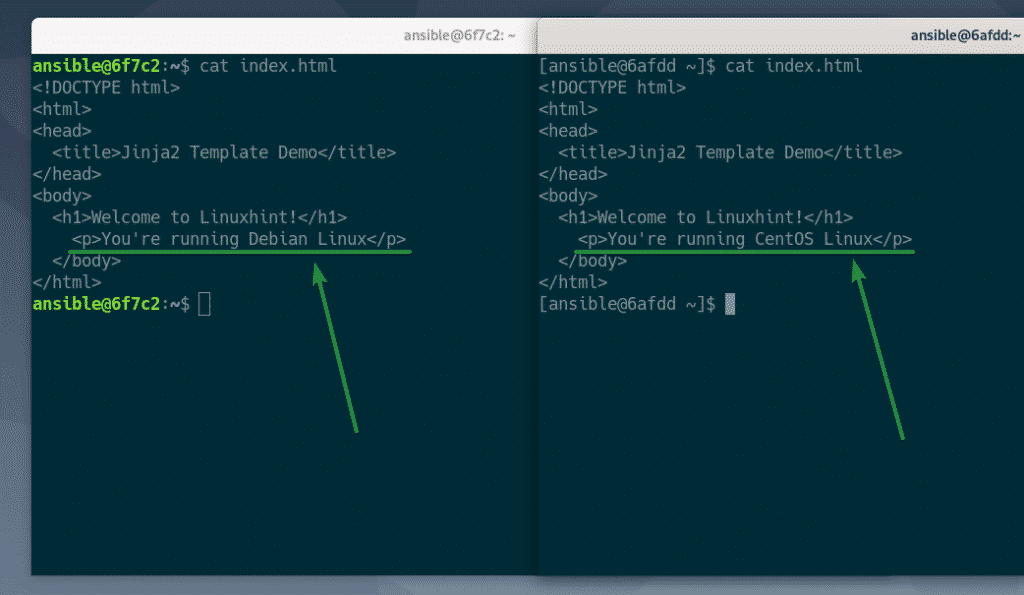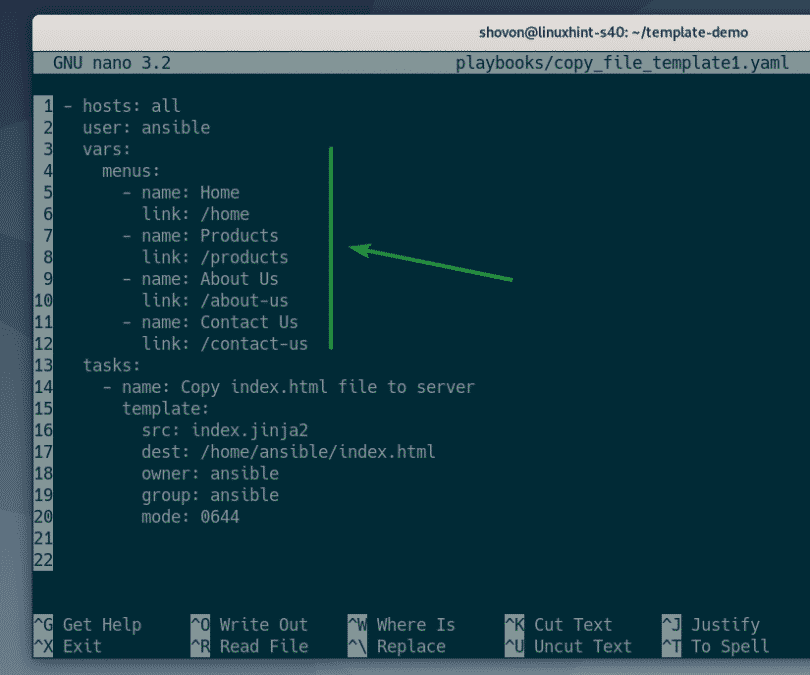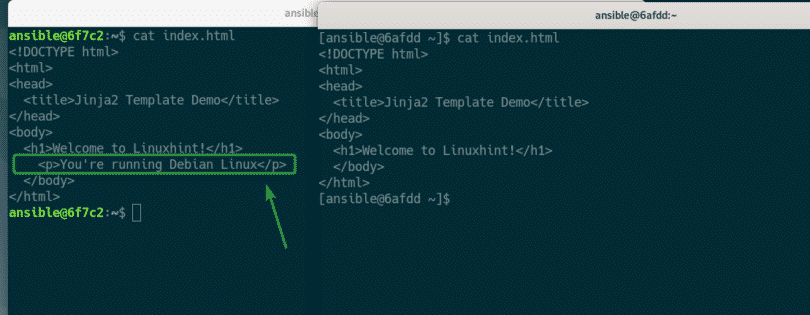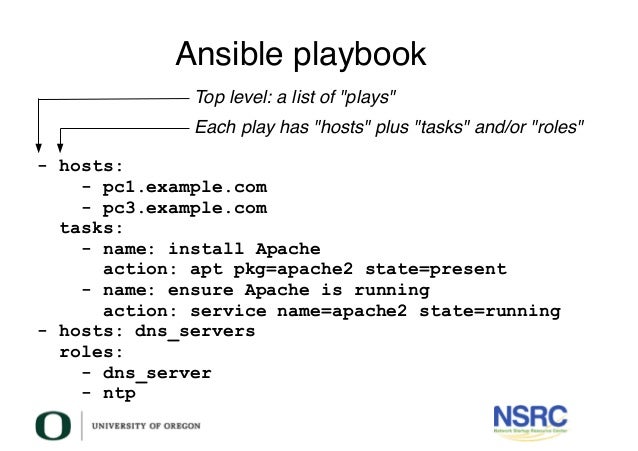Ansible Jinja2 Template Example
Ansible jinja2 template example - I didn't like any of the answers, they feel too hacky (having to worry about outputting none, or spurious whitespace using other techniques), but i think i've found a solution that works well.i took inspiration from this answer on a related question and realized that you can call set multiple times for the same variable and seemingly not incur any penalty. Test plugins test plugins verify data. This is the best way to prevent. They are a feature of jinja2 and are also available in jinja2 templates used by the template module. As with all plugins, they can be easily. Since ansible 0.9, templates are loaded with trim_blocks=true. In this example, we will use a jinja2 template to see how it will be transformed into strings and copied to a file on remotehosts. False which changes the variable interpolation markers to [% var %] instead of {{var}}. In the next example, you will find out how a basic jinja2 template looks like and use it in a role. For example lookup plugins, see the source code for the lookup plugins included with ansible core.
Also, you can override jinja2 settings by adding a special header to template file. Here we discuss what is ansible template with the working and respective example for better understanding. For more usage examples of lookup plugins, see using lookups. For the first group of hosts, group1, selinux will be enabled. Another useful ansible playbook example containing this time two plays for two hosts is the next one.
How to Use Ansible Template Module DevsDay.ru
This is the best way to prevent. Another useful ansible playbook example containing this time two plays for two hosts is the next one. I didn't like any of the answers, they feel too hacky (having to worry about outputting none, or spurious whitespace using other techniques), but i think i've found a solution that works well.i took inspiration from this answer on a related question and realized that you can call set multiple times for the same variable and seemingly not incur any penalty.
How to Configure and Use Ansible Jinja2 Template
I didn't like any of the answers, they feel too hacky (having to worry about outputting none, or spurious whitespace using other techniques), but i think i've found a solution that works well.i took inspiration from this answer on a related question and realized that you can call set multiple times for the same variable and seemingly not incur any penalty. Another useful ansible playbook example containing this time two plays for two hosts is the next one. In the next example, you will find out how a basic jinja2 template looks like and use it in a role.
How to Use Ansible Template Module Linux Hint
I didn't like any of the answers, they feel too hacky (having to worry about outputting none, or spurious whitespace using other techniques), but i think i've found a solution that works well.i took inspiration from this answer on a related question and realized that you can call set multiple times for the same variable and seemingly not incur any penalty. They are a feature of jinja2 and are also available in jinja2 templates used by the template module. As with all plugins, they can be easily.
How to Use Ansible Template Module Linux Hint
They are a feature of jinja2 and are also available in jinja2 templates used by the template module. This is the best way to prevent. For more usage examples of lookup plugins, see using lookups.
Configuration Management in Ansible
For the first group of hosts, group1, selinux will be enabled. Also, you can override jinja2 settings by adding a special header to template file. They are a feature of jinja2 and are also available in jinja2 templates used by the template module.
How to Use Ansible Template Module Kirelos Blog
At the run time, depending on, let’s say in which datacenter your server is. Test plugins test plugins verify data. For the first group of hosts, group1, selinux will be enabled.
SysGeniuseLog How to Write a Custom Ansible Callback Plugin to Post
As with all plugins, they can be easily. This is the best way to prevent. Another useful ansible playbook example containing this time two plays for two hosts is the next one.
How to Use Ansible Template Module Linux Hint
At the run time, depending on, let’s say in which datacenter your server is. I didn't like any of the answers, they feel too hacky (having to worry about outputting none, or spurious whitespace using other techniques), but i think i've found a solution that works well.i took inspiration from this answer on a related question and realized that you can call set multiple times for the same variable and seemingly not incur any penalty. In this example, we will use a jinja2 template to see how it will be transformed into strings and copied to a file on remotehosts.
Also, you can override jinja2 settings by adding a special header to template file. This is the best way to prevent. Since ansible 0.9, templates are loaded with trim_blocks=true. They are a feature of jinja2 and are also available in jinja2 templates used by the template module. For the first group of hosts, group1, selinux will be enabled. At the run time, depending on, let’s say in which datacenter your server is. I didn't like any of the answers, they feel too hacky (having to worry about outputting none, or spurious whitespace using other techniques), but i think i've found a solution that works well.i took inspiration from this answer on a related question and realized that you can call set multiple times for the same variable and seemingly not incur any penalty. Another useful ansible playbook example containing this time two plays for two hosts is the next one. In this example, we will use a jinja2 template to see how it will be transformed into strings and copied to a file on remotehosts. In the next example, you will find out how a basic jinja2 template looks like and use it in a role.
For this, create a playbook with below content: Here we discuss what is ansible template with the working and respective example for better understanding. For example lookup plugins, see the source code for the lookup plugins included with ansible core. For more usage examples of lookup plugins, see using lookups. Test plugins test plugins verify data. False which changes the variable interpolation markers to [% var %] instead of {{var}}. As with all plugins, they can be easily.







